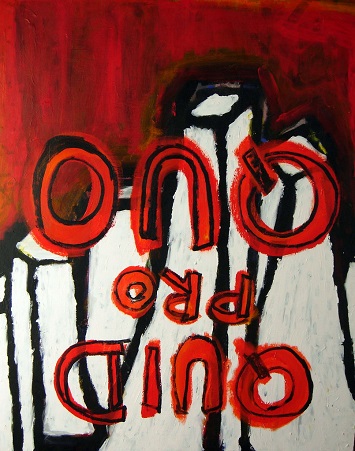The elephant in the executive room
Let’s start this piece of writing with a concept which corresponds to the definition of “a situational decision that involves diminishing or losing one quality, quantity or property of a set or design in return for gains in other aspects.”
None the wiser?
What if I add that it’s about something that happens whenever one thing increases and another must decrease?
Yes, you got it: I’m referring to tradeoffs.
Every time I see an executive automatically select the cheapest solution, without any previous assessment of the benefits and the drawbacks of each conceivable option, I wonder what their background is and why they don’t seem at ease with tradeoffs like they should.
Please, let me go just a little deeper into this topic, and I bet you’ll concur that I’m not asking for the moon in the slightest.
According to Wikipedia, for example:
- “In economics a trade-off is expressed in terms of the opportunity cost of a particular choice, which is the loss of the most preferred alternative given up. A tradeoff, then, involves a sacrifice that must be made to obtain a certain product, service or experience, rather than others that could be made or obtained using the same required resources.”
- “Tradeoffs are important in engineering.”
- “In biology and microbiology, tradeoffs occur when a beneficial change in one trait is linked to a detrimental change in another trait.”
The thing is, whether they are skilled at economics, engineering, biology, or lots of other areas of expertise, I would conclude that upper management should be familiar with tradeoffs.
As a matter of fact, the concept applies to almost every discipline.
After all, negotiations and compromises are part of our daily lives, aren’t they?
Throughout one of his great lessons about Software Testing, for example, Cem Kaner once said: “You have to make tradeoffs between things that you need to do because you can’t do them all”.
So, why some executives seem to have completely forgotten about that?
Shouldn’t they be spending a significant part of their time optimizing tradeoffs?
Shouldn’t they look for the best value for money?
Shouldn’t their job be a little more complicated than just deciding on cut-rate stuff?
As far as I know, the only people for whom it makes sense to choose always the cheapest option are the poor: as their basic needs might be seriously at risk of not being covered, they cannot even think about the best value for money.
Anyway, it has to be noticed that their behaviour is usually consistent with their purchasing power: they won’t have dinner at an expensive restaurant nor will they go to a boutique to buy their clothes; they won’t inhabit posh neighbourhoods either.
On the contrary, executives seem not to mind spending time bragging about their businesses.
Yet still, they steadily opt for the lowest priced solutions on the sly.
So, I wonder if all those business people who, in spite of being in charge of apparently successful companies, constantly select the cheapest option are really leading wealthy organizations, or are rather in need of basic supplies, but just don’t like to admit it.
Otherwise, how would you explain their behaviour?
All in all, every time an executive skips the tradeoffs analysis process, I think they might rather look to charities for satisfying their needs…


Thanks for reading this article.
Feel free to recommend it or to add a comment.
On the other hand, if you want to get notified about my blog posts, please sign up through the BLOG > SUBSCRIBE TO THE BLOG NEWSLETTER menu.
Thank you.